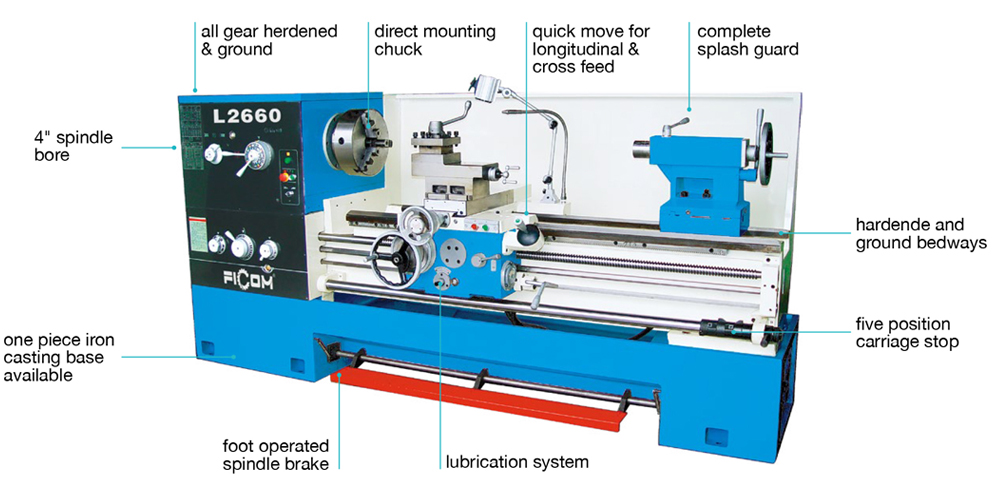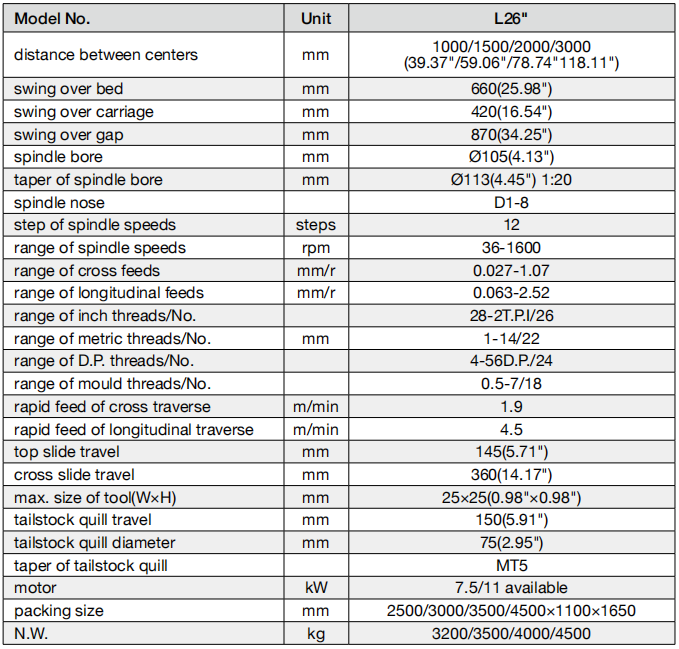Views: 24 Author: JSC Publish Time: 2024-12-13 Origin: Site
Lathe machines, especially precision lathes, have become indispensable tools in the production of highly accurate parts for various industries. These machines are designed to shape and machine material by turning it against a cutting tool, enabling users to produce everything from simple cylindrical shapes to complex mechanical components. Whether you're working with metal, wood, or plastic, understanding the capabilities and benefits of lathe machines can help you make the right choice for your manufacturing needs.

Precision Lathe: What Makes it Different?
A precision lathe is designed for high accuracy and is commonly used for the production of intricate and detailed components. These machines are equipped with advanced features such as high-speed spindles and precise tool controls, allowing them to work with tolerances as low as micrometers. Precision lathes are typically used in toolrooms, laboratories, and in the production of high-end mechanical parts such as shafts, gears, and fixtures.
Key Features of a Precision Lathe Machine
· High Precision: Precision lathes are engineered to achieve extremely tight tolerances, making them ideal for industries that require detailed, high-accuracy work.
· Flexibility: These machines can handle a variety of materials, including metals like steel, aluminum, and titanium, as well as plastics and composites.
· Advanced Control Systems: CNC precision lathes provide automated and programmable control, offering repeatability and high efficiency.
· Durability: Built for continuous operation, precision lathes are designed to endure heavy workloads and operate at high speeds without compromising on quality.
Lathe Machine Applications
Lathe machines are used in a wide range of industries, including automotive, aerospace, manufacturing, and medical device production. They are commonly used to create:
· Shafts and Axles: Essential parts in automotive and industrial applications.
· Gears and Bearings: Used in machinery and power transmission systems.
· Threaded Components: For screws, bolts, and fasteners.
· Cylindrical Components: Such as pipes and rods.
Precision Lathe vs. Other Lathes
While traditional lathes are suitable for general machining tasks, precision lathes stand out due to their high tolerance capabilities. These machines are particularly important for jobs where the highest degree of accuracy is essential. The difference lies in the machine's rigidity, control, and ability to minimize vibrations, which can affect precision.
When selecting a lathe machine, several factors need to be considered, including:
· Material Type: Consider what materials you'll be working with to ensure the lathe can handle the job.
· Tolerances: If your work requires tight tolerances, a precision lathe will be necessary.
· Automation Needs: CNC lathes are ideal for complex, high-volume tasks that require repeatability.
· Size and Scale: The size of the workpieces and the volume of production also determine the choice of lathe.
Benefits of Using Precision Lathes
1. Increased Productivity: With higher speed and accuracy, precision lathes can improve production efficiency.
2. Better Quality Control: Tight tolerances ensure that every part meets quality standards.
3. Cost-Effective: While precision lathes may have a higher initial cost, their longevity and ability to minimize waste make them a cost-effective choice for long-term production.
Technical Parameters

FAQs
1.What are the advantages of precision lathes?
Precision lathes offer high accuracy, tight tolerances, and smooth surface finishes, making them ideal for producing complex and detailed components in industries like aerospace, automotive, and medical devices.
2.How precise can a precision lathe be?
A precision lathe can achieve tolerances as tight as 0.0001 inches (0.0025 mm), ensuring highly accurate parts.
3.What is the difference between accuracy and precision in machining?
Accuracy refers to how close a part is to the desired or target measurement, while precision refers to the consistency of measurements or how closely parts match each other over multiple attempts.
4.Which machining process is more accurate?
Precision lathes are among the most accurate machining processes, particularly for turning operations, offering tighter tolerances than processes like milling or drilling.
Conclusion
Whether you're producing high-precision parts for aerospace, automotive, or other industries, a lathe machine—especially a precision lathe—provides the accuracy, efficiency, and flexibility you need. Understanding the differences between various lathe machines and their applications ensures you choose the best tool for your manufacturing needs. Investing in precision lathes can significantly improve your business’s overall performance and product quality, making them an essential asset in any high-precision machining operation.
Call to Action:
Looking for a reliable Precision Lathe? Contact us today to explore our extensive range of Precision Lathe Reliable Pergormance and find the perfect solution for your production needs.
Phone: +86-13905278551
E-mail: jeff@jscmachinery.com
WhatsApp:+86-13905278551